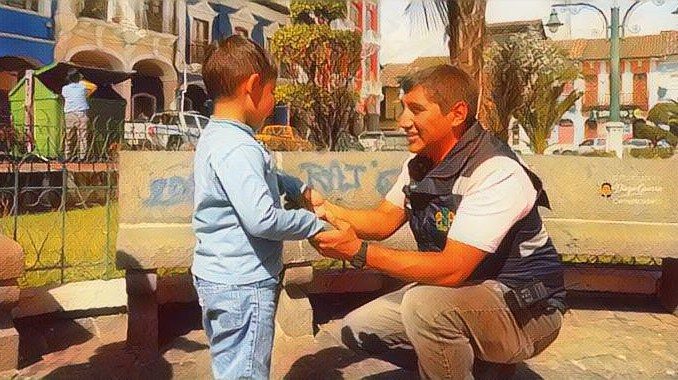
There are 3,247 cases of disappearances of minors in Guayas, Pichincha, Manabí, Tungurahua and Azuay.
Guayas, Pichincha, Manabí, Tungurahua and Azuay are the provinces in which the largest number of missing minors is registered.
According to the National Directorate of Specialized Police for Children and Adolescents (Dinapen) of the 5,204 cases registered nationwide in 2019, only in these provinces would they add 3,247. Meanwhile, 4,989 cases were resolved in the country and 206 remain under investigation.
In Guayas, 1291 cases were treated, of which 1,223 were resolved; in Pichincha there were 1,196 processes and 1,137 were resolved.
In Manabí, on the other hand, 269 complaints were received and 259 were resolved. Meanwhile, in Tungurahua there were 249 cases and a response was obtained to 240; and in Azuay of the 242 complaints filed, 236 were resolved.
The disappearance of a child is a time of pain and uncertainty for his parents. For Xavier Miranda, Anahí’s father, a girl who was kidnapped in the south of Quito and recovered on August 14, 2019, that moment is critical and something that nobody wants.
In the case of Quito, last year, 1,106 cases such as Anahí were reported, so it became the city with more reports of missing children, followed by Guayaquil with 989 cases.
Of the total number of cases attended in the capital, 1,050 were resolved. In those cases, the minors were found and handed over to their parents. According to the Dinapen report, these are added by a deceased minor. The others have not yet been resolved, but are still under investigation.
Colonel Silvio Dávila Carpio, director of the Dinapen, explained that the complaints that are presented in time facilitate the investigations carried out by the intelligence personnel and help to comply with the search protocols.
He commented that when family members provide recent photographs and provide all the information, it is possible to guide the operations.
He mentioned that in these cases you can not waste time and that citizens could approach the Community Police Unit and warn about the disappearance.
Dávila said that in 2019 under these parameters there was a 95% effectiveness in search tasks.
He explained that they manage an average time of 72 hours to attend and resolve a recent disappearance, but 92% of the events that were recorded in 2019 were resolved in just 24 hours.
On the other hand, it is expected that with the validity of the Organic Law of Action in Cases of Missing Persons, these cases will be dealt with more promptly.
The procedure of the norm ended on December 19, when the Plenary of the Assembly ruled on the partial objection sent by the Executive, but entered into force at the end of January.
Now, it is up to the Executive to issue a regulation and to the Ministry of Economic and Social Inclusion to implement a registry of people in situations of abandonment, without identity, or family reference, in shelters or foster homes, to contrast with the National Registry of Missing Persons that creates the regulations.
Similarly, the National Service of Legal Medicine and Forensic Sciences must issue a protocol to implement a database of deceased, unidentified, unclaimed and unidentified persons.
This will allow for real information that can be checked against cases of missing persons.
Source: La Hora, social networks


Be the first to comment